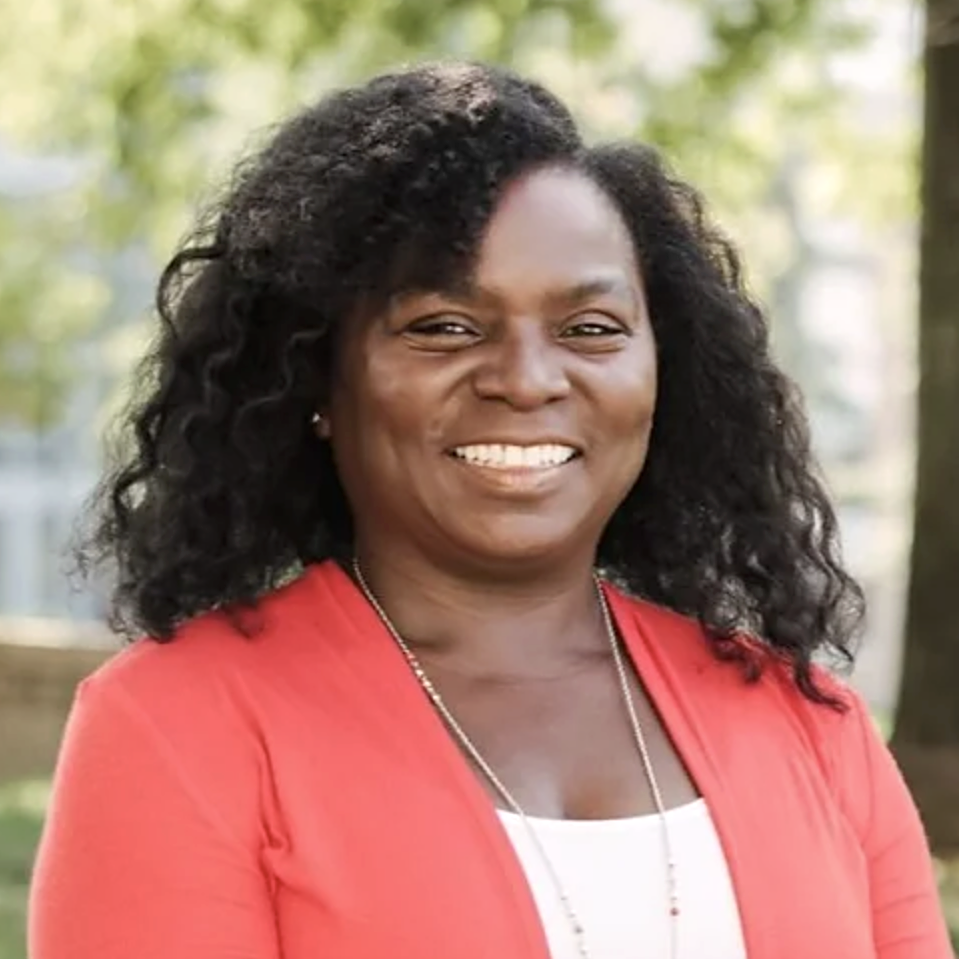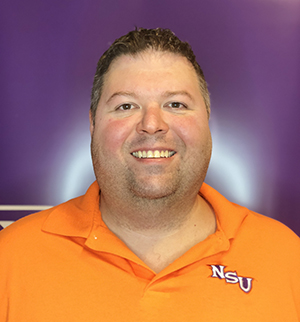Keynote & Featured Speakers
Tuesday, March 14
The Future of Literacy in the Age of AI
Patricia A.Young, University of Maryland at Baltimore County
Abstract: The future of literacy in the age of AI is an exploration of the current landscape of social media and information technology. This talk is futures based looking at the present and charting forward to a different literate future. Ultimately, is this what we want the future of literacy to look like?
Bio: Dr. Patricia A. Young is Chairperson and Professor in the Department of Education at the University of Maryland Baltimore County. She is the 2023 recipient of Indiana University‘s School of Education Dean’s Medallion that is a lifetime achievement award given to individuals who have demonstrated an unwavering commitment and distinguished contributions to the betterment of society through education. Honorees’ work must represent extraordinary standards of excellence as evidenced by scholarship or creative activity; professional achievement; or public service.
Her research strands include: The history of African American contributions to the field of educational technology; Culture in Instructional Design & Technology and Culture-Specific Information & Communication Technologies. She developed the Culture Based Model as a novel framework for building culture-based information and communication technologies. This model is documented in several articles, and her 2009 book Instructional Design Frameworks & Intercultural Models. She is the first woman and African American to serve on the editorial board of the internationally ranked journal Educational Technology Research and Development. Dr. Young also built Proticy, an original learning analytics software that improves teaching and learning in higher education. Her new book Human Specialization in Design and Technology: The Current Wave for Learning, Culture, Industry and Beyond (2021) advocates for innovation as the way to improve industry, education and human performance. This book is a winner of the 2021 Outstanding Publication Award for a Book from the Culture, Learning and Technology Division of the Association for Educational Communications & Technology.
Wednesday, March 15
Reimagining Virtual Education: From Discord to the Metaverse
Daniel Gordy & Eddie Horton, Northwestern State University
Abstract: Even prior to the pandemic, educators have consistently sought to reimagine the classroom and other learning environments. Experiential learning activities have been a part of classroom pedagogy for decades. Whether that is taking students on field trips to statehouses to see democracy in action, guiding students through ethnographic field studies, or engaging in experiential learning through virtual spaces like social media or gamification. Learning in virtual spaces has become a necessary reality of the pandemic. However, experiential learning in virtual spaces, like the Metaverse, will soon become a significant part of our educational structure.
Prior to the pandemic, the research team focused on the efficacy of creating virtual spaces outside of the classroom through real-time communication platforms like Discord, Teams, etc. This research showed increases in student engagement with faculty and other students. Further, when these virtual environments are created as informal discourse spaces, there were significant increases in student comfortability and decreases in student anxiety, in addition to other associated mental health variables. During the pandemic, this research was replicated with similar results across multiple virtual communication platforms such as Microsoft Teams.
Building upon this research, the researchers have been conducting informal. interdisciplinary studies on the efficacy of the variables (mental health, anxiety, engagement) as related to virtual reality. Combining this research with existing research on VR efficacy in criminal justice, correctional education, business, and computer information systems, the research team will present on the above variables through an experiential VR presentation. Additionally, this presentation will address applied methods of integration of VR technology in the traditional K-12 classroom, university setting, and specialized educational settings, such as correctional education.

 Speaker Bios: Daniel Gordy holds a M.A. in Liberal Arts with concentrations in both English and Criminal Justice, combining with over a decade of experience in Technical Communication and Correctional Education from the private sector. Daniel Gordy is currently an Assistant Professor of Criminal Justice and English at Northwestern State University and currently serves as Vice-President of Faculty
Speaker Bios: Daniel Gordy holds a M.A. in Liberal Arts with concentrations in both English and Criminal Justice, combining with over a decade of experience in Technical Communication and Correctional Education from the private sector. Daniel Gordy is currently an Assistant Professor of Criminal Justice and English at Northwestern State University and currently serves as Vice-President of Faculty
Senate. As an interdisciplinary scholar, Daniel has presented at various national and international conferences on a variety of subjects including Popular Culture and First-Year Composition, AI & Human-Machine Learning, Gender and Correctional Classification, and Correctional Education. He also serves as Journal Editor for the Journal of Research in Business Information Systems, co-chair of the Louisiana Studies Conference, and program and paper reviewer for multiple conferences. Other areas of academic research include virtual reality, queer studies, agency-informed pedagogy, trauma-informed pedagogy, and digital storytelling.
Eddie Horton is an Associate Professor of Computer Information Systems at Northwestern State University. His primary teaching and research interests include networking, information security, social engineering, and ethical hacking. Dr. Horton currently serves as President of the Association of Business Information Systems/Federation of Business Disciplines. He holds several industry certifications from CompTIA, Cisco, Microsoft, and Dell/EMC. When not at work Dr. Horton is active with a local Mardi Gras Krewe enjoys spending time with all four of his four-legged children. While he makes a great dog dad, he’s an awful drone pilot.
Thursday, March 16
Rewilding Digital Education: Untethering Teachers for Future’s Sake
Mark Brown, Director of National Institute for Digital Learning, Dublin City University, Ireland
Abstract: The future is deadly serious. While predicting the future is best left to those with a crystal ball or talent for writing speculative fiction, this talk is anchored in future histories. The basic premise is that to craft a more equitable, sustainable and socially-just post-digital world, we must look backwards to help envision our preferred futures. As George Orwell wrote, “Those who control the present, control the past and those who control the past control the future”. Thus, in many respects, the future already exists in the past. This point is illustrated by adopting a critical, wide-angle, multi-focal lens that zooms in and out and back and forward across three digital horizons: past, present and future. Firstly, we explore some of the underlying myths, half-truths and contradictions about the nature of digital transformation. History teaches us to be wary of false clarity. Transformation is rarely benign. Therefore, digital education must be understood as part of wider social practice involving several competing languages of persuasion. Greater attention should be placed on the big ideas that evoke broader social imaginaries: our ideas about what constitutes the good learner, the good citizen and the good society. From this important juncture, we journey back in time to help rediscover some of our ideas about good pedagogy, which praise the value of low-tech emptiness intoday’s hi-tech classroom. Several examples from the previous millennium illustrate that good pedagogy has little to do with delivering pre-packaged digital content. Also, they remind us that how teachers decide to use new digital technology in their classrooms is strongly mediated by their pre-existing beliefs. Despite rapid advances in new digital technology since the turn of the century, how successful have we been at cultivating a similar growth in the transformative mindsets amongst our teachers? Is the rise of platform power and technology solutionism in our schools, colleges and universities stifling or enabling teachers’ criticality, creativity and imagination? Are our teachers better prepared than 20 years ago to reimagine the art of the possible with a critical digital edge? The final section builds on these questions as we chew on a sticky problem and look at the rewilding of digital education to give teachers more freedom to be future makers. A call is made to uncage the traditional curriculum to give teachers greater agency and institutional licence to hack more creative, disruptive and playful ways of learning that push digital boundaries within a larger and more complex education system. In the spirit of teaching as a subversive activity, teachers and teacher educators are challenged to think differently and reawaken, rekindle and renew their commitment to pedagogical activism for our future’s sake.
 Speaker Bio: Professor Mark Brown is Ireland’s first Chair of Digital Learning and Director of the National Institute for Digital Learning (NIDL) at Dublin City University, Ireland. Mark is a Senior Fellow of the European Distance and eLearning Network (EDEN) and also serves on the Management Board of EDEN Digital Learning Europe. Additionally, Professor Brown serves on the Supervisory Board of the European Association of Distance Teaching Universities (EADTU). Originally from New Zealand, Mark continues to maintain strong “down under” links and, until recently, was Vice-President of the Open and Distance Learning Association of Australia (ODLAA). In 2017, the Commonwealth of Learning (CoL) recognised Mark as a world leader in the Open, Distance and Digital Education field. Shortly before the outbreak of the COVID-19 pandemic, Professor Brown was Chair of the 2019 ICDE World Conference on Online Learning in Dublin. In 2020, Mark contributed to the European Commission’s Higher Education Consultation Group on developing a EU-wide policy response to the growth of micro-credentials. In 2021, Mark completed a state-of-the-art literature review on the global development of micro-credentials on contract with the European Commission. In 2022, the OECD commissioned Professor Brown to review quality assurance processes for new blended, hybrid and online learning models worldwide. Mark also has a similar contract with Quality and Qualifications Ireland (QQI) to develop new Statutory Quality Assurance Guidelines in this area. Mark offers a unique international perspective and has over 800 scholarly publications in his fields of interest. For more information, see… https://www.dcu.ie/nidl/director-nidl
Speaker Bio: Professor Mark Brown is Ireland’s first Chair of Digital Learning and Director of the National Institute for Digital Learning (NIDL) at Dublin City University, Ireland. Mark is a Senior Fellow of the European Distance and eLearning Network (EDEN) and also serves on the Management Board of EDEN Digital Learning Europe. Additionally, Professor Brown serves on the Supervisory Board of the European Association of Distance Teaching Universities (EADTU). Originally from New Zealand, Mark continues to maintain strong “down under” links and, until recently, was Vice-President of the Open and Distance Learning Association of Australia (ODLAA). In 2017, the Commonwealth of Learning (CoL) recognised Mark as a world leader in the Open, Distance and Digital Education field. Shortly before the outbreak of the COVID-19 pandemic, Professor Brown was Chair of the 2019 ICDE World Conference on Online Learning in Dublin. In 2020, Mark contributed to the European Commission’s Higher Education Consultation Group on developing a EU-wide policy response to the growth of micro-credentials. In 2021, Mark completed a state-of-the-art literature review on the global development of micro-credentials on contract with the European Commission. In 2022, the OECD commissioned Professor Brown to review quality assurance processes for new blended, hybrid and online learning models worldwide. Mark also has a similar contract with Quality and Qualifications Ireland (QQI) to develop new Statutory Quality Assurance Guidelines in this area. Mark offers a unique international perspective and has over 800 scholarly publications in his fields of interest. For more information, see… https://www.dcu.ie/nidl/director-nidl






